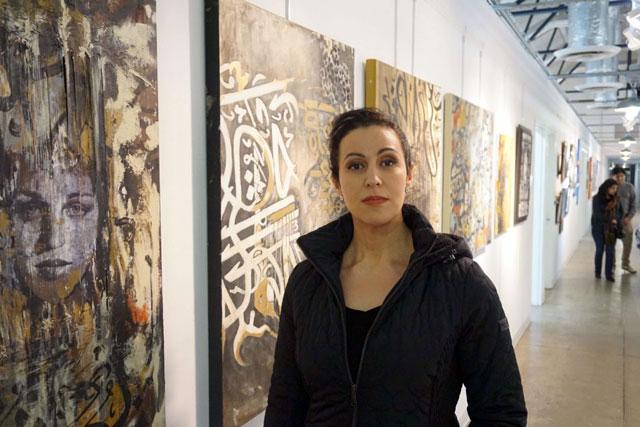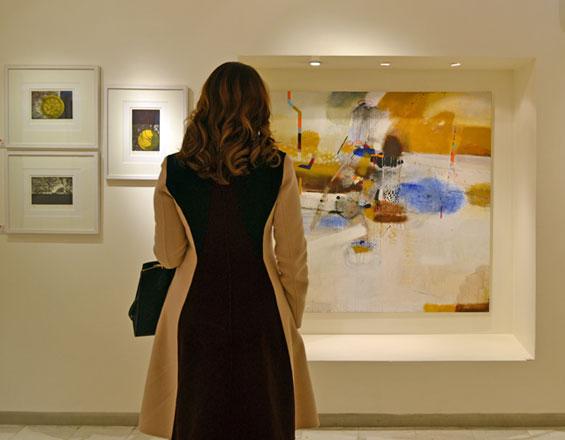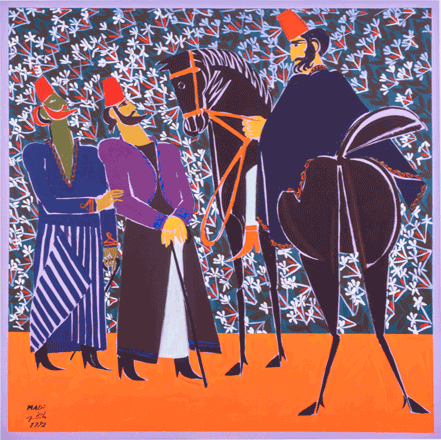You are here
Panel delves into women’s many roles in art, history
By Suzanna Goussous - Oct 15,2015 - Last updated at Oct 16,2015
AMMAN — Arab artists, academics and poets unearthed a history of women’s prominence in art, business and religion at a panel held Wednesday in Amman in conjunction with Gallery 14’s ongoing “Woman I” exhibition.
The panellists — Jordanian poet and human rights activist Zuleikha Aburisha, Iraqi professor Zeena Sultan, and Jordan-based artist Muhanna Durra — discussed how women are represented in art and life at the event, which coincided with the worldwide Breast Cancer Awareness Month.
Aburisha noted that not only were there around 250 to 300 female poets active in the early ages of Arabic literature, but a long tradition of Arabic poetry attests to women’s impact.
“The images depicted of women in Arabic poetry show their importance and the way they were [respected] in local communities. Arab poets throughout history present their appreciation of women, each in their own style,” she said.
“The woman has a special place in art... she has even been a goddess, according to Greek narratives,” said Durra. He added, “Women are full of beauty, which is why we always link art with women.”
Sultan stressed that women were the first to start businesses in history and that their careers in different historical periods spanned trade, agriculture and religious roles.
Women can take credit for innovations such as the use of herbs in medicine, and tools for constructing houses and manufacturing furniture, she said.
The Iraqi professor added that many women served their countries in various capacities during the two world wars in the 20th century.
Sultan also highlighted the celebration of women in many religions as individuals and as loving mothers.
The panellists and attendees debated how art can depict women so as not to portray them as “objects”.
An academic who attended the event contrasted women’s power in certain eras of history — as in the ancient Nabataean kingdom that once surrounded Petra — with their struggles in parts of the world today.
“[The Nabataean period] was a time when women enjoyed full rights, but nowadays women can’t even leave their money to their children,” she lamented.
“Women are the source of beauty and empowerment, so we must work on giving them back their self-confidence,” said Sally Khalil, another attendee.
Organisers of Gallery 14’s “Woman I” exhibition said they aimed to highlight how women contribute to their countries and to demonstrate the range of depictions of women in art.
The exhibition, showcasing the work of 13 Arab artists, will continue until November 12.
Related Articles
AMMAN — Manal Deeb, a Palestinian-American visual artist who was born in Ramallah and moved to the US to study fine arts, explores Palestini
AMMAN — From the visual aesthetics of Arab poetry to the history of Al Andalusia, Orient Gallery opened its doors to welcome its visitors to
AMMAN — Under the patronage of HRH Princess Ghida Talal, the Jordan National Gallery of Fine Arts organises a solo exhibition for Lebanese a


















